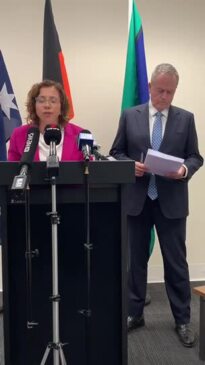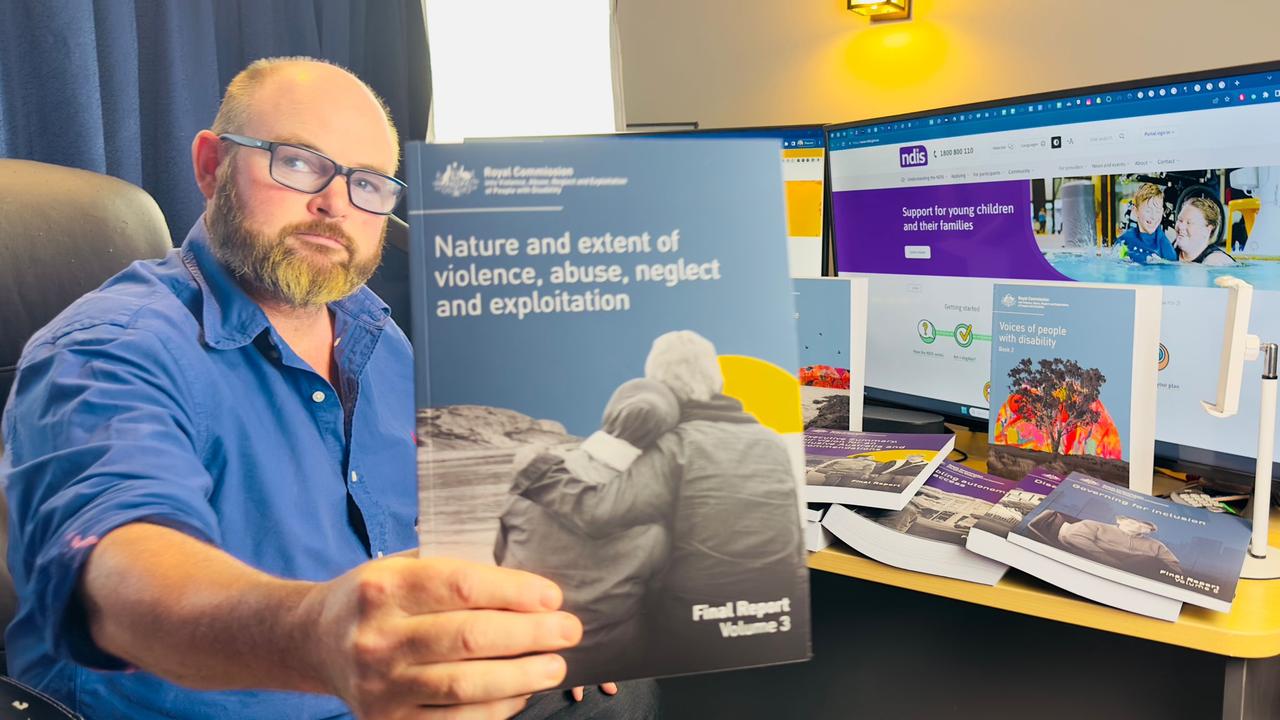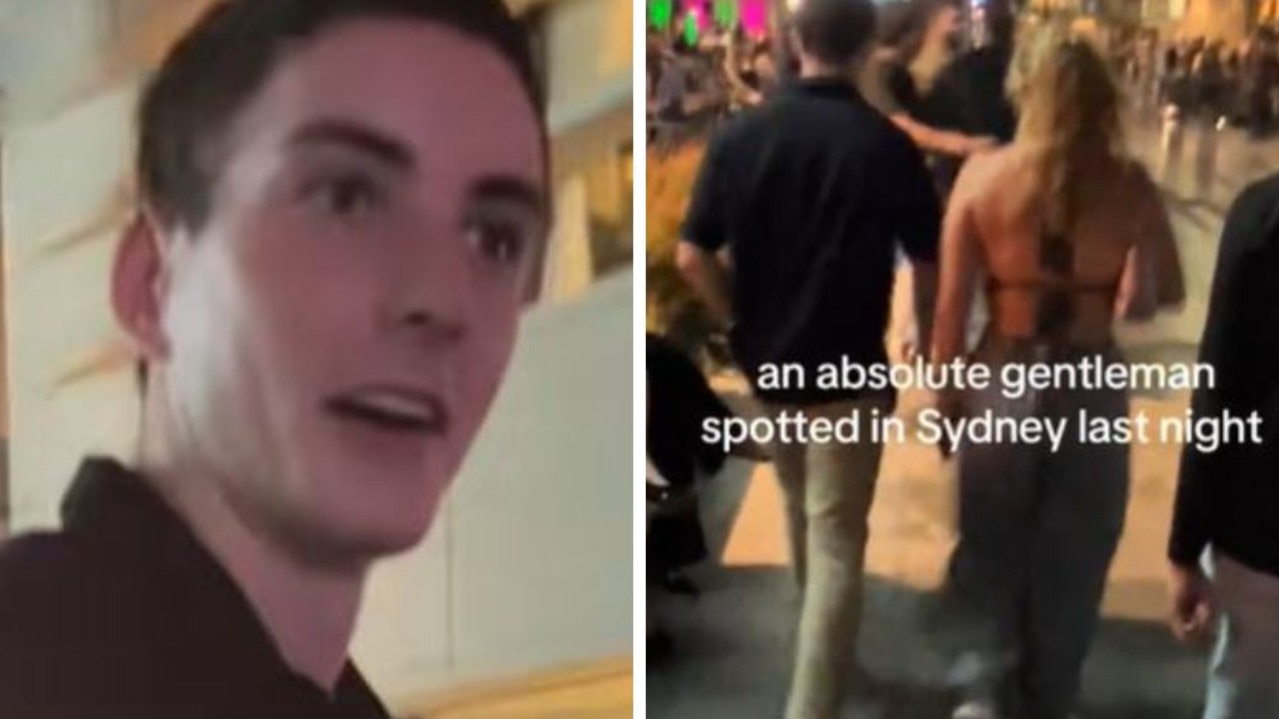‘They’re going to kill me’: Two days later she was dead
Lisa made an alarming phone call, two days later she was dead. Her story is one every Australian should read. Warning: DISTRESSING

Note: The following article contains descriptions of abuse that may be upsetting to some readers.
When care worker Ariana* got a phone call from Lisa*, a former client turned friend, she was alarmed by what she heard.
“She said, ‘they’re going to kill me’,” Ariana recalls.
Lisa was in tears begging Ariana to come and collect her from the group care home she’d recently moved into.
“Things got really bad. She wanted to come back to us, but she had to put in her two weeks’ notice first, which is when it all unravelled,” Ariana says.
Two days later, Lisa, who was only in her 30s, was found dead.
Her life hadn’t always been this way.
Lisa, a disabled woman, living with several complex physical and mental health conditions, had struggled with significant trauma since her teens, but after finding the right support, had started her own business.
Ariana says it lit a fire inside of her.
“She was so proud of it,” the National Disability Insurance Scheme (NDIS) provider says. “And she was good at it, too … She was making huge strides and we were so happy for her.”

But Lisa’s life unravelled after she moved into a new group home.
Ariana suspects Lisa had fallen victim to what industry experts say is an all-too common practice when someone has a Supported Independent Living (SIL) plan.
“Dodgy providers see it as a blank cheque,” says Ariana.
“They lie and manipulate already vulnerable people by promising them the world and convincing them to switch services. Once they have their hands on their funding, they can misspend it how they see fit.”
This, Ariana says, may have happened in Lisa’s situation, after a new provider convinced her to switch over into their care.
“They were performing restrictive practices for no good reason, and isolating her from everyone,” Ariana alleges. “They told her they wouldn’t drive her to appointments, because they didn’t want to put the extra kilometres on their car.”
Lisa, who also had significant PTSD, was frequently assigned male carers despite her request for a female team, an issue that would often leave her locked in her room in fear.
“The whole point of a Supported Independent Living plan is to help someone live a fulfilling life with dignity and as much independence as possible,” says Barbara*, another of Lisa’s friends.
“But by the end, her support workers weren’t even allowing her to leave the house. She was supposed to be around other people in the group home to give her social interaction as well, but they had no one else in the home with her apart from ‘carers’ who wouldn’t let her out.”

Before her death, Lisa reported the company to the NDIS Safeguard Commissioner and later made that phone call to Ariana, but two days after the conversation in which she expressed fear for her life, Lisa had died.
Barbara – Lisa’s next of kin – received a call from the company that ran Lisa’s group home two days after she had died.
“They told me she’d died of a cardiac arrest,” says Barbara. “When I called the police to find out more information, they wouldn’t talk to me. I was her next of kin, but they’d informed her biological family – who she didn’t speak to – and shut me out.”
When news.com.au contacted the NDIS Safeguard Commissioner, a spokesperson said: “The NDIS Commission received a complaint from [redacted] before she passed away. That complaint was resolved.”

Disability advocate River Night says the NDIS needs to immediately enforce and expand a safeguarding system like the Community Visitors Program – which before the NDIS had a lot more investigative power in terms of access to group homes – in order to prevent situations like Lisa’s from occurring.
“The most outrageous and shocking impact of the implementation and roll out of NDIS, is the reduction of the state community visitor programs,” says Mr Night, who once worked as part of the program before the NDIS rollout.
“This was the only statutory role going into disability service settings and checking on restrictive practices, checking funding was appropriate to the situation, checking on human rights abuse and access to services a person should have in place.
“When the NDIS rolled out, they decided that Community Visitor Programs can’t really escalate things in the same way or bug the funding body, because state-based programs don’t have any power over federal. So that relationship where we were about to work closely with the state government to make sure that things were being done properly just fell over.”

Night adds that while the NDIS still regulates providers who perform restrictive practices, it relies on self-reporting, meaning that only providers who self-select as using such practices are subjected to checks and balances.
“So many times we would go into a facility or home and discover they were using restrictive practices without authorisation, and have to explain to a provider why they couldn’t do it without the right systems in place,” he says. “Most of the places we visited wouldn’t have said they were using them, and it was our job to inform them that actually, they were.”
Despite the recommendations from the recently released final report from the NDIS Review putting ‘shonky’ NDIS providers on notice, Night says action needs to be swift in order to protect our most vulnerable people.
“It’s going to take the mechanisms of government too long,” he says. “And if that was your child being bashed, raped, or abused, would you be happy with a response from government saying ‘we’re going to make sure people are going to check on that today’?
“Or would you be OK with them saying, ‘hey, in the next 10 to 15 years, we’ll come up with a plan’?”
For Barbara and Ariana, still mourning the loss of “beautiful, funny” Lisa, left with more questions than answers, the report is too little, too late.
“I’m hopeful some of the recommended changes will shake up shonky providers, but it will take a long time. I’m going to be pushing for more changes, because I don’t want this to happen to anyone else. You wouldn’t treat an animal the way Lisa was treated,” says Ariana.
*Names have been changed
Bek Day is a freelance writer.





